Community
“Black Progressive Thought” Focus of Upcoming Liberating Futures Discussion
The discussion focuses on uncovering the longstanding legacies of progressive anti-racist action in Warren County, from early educational reform initiatives to Civil Rights struggles and environmental justice.
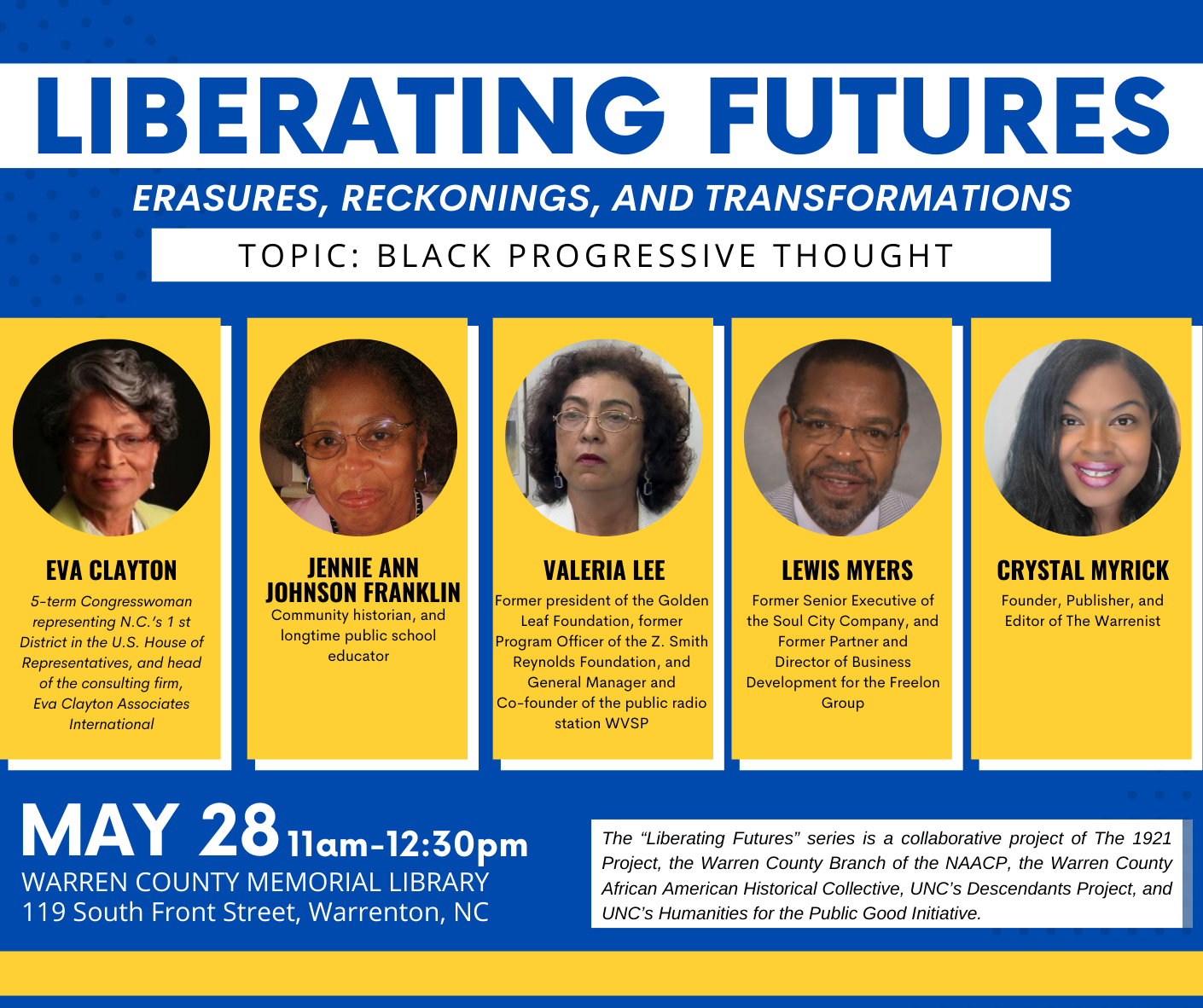
When strangers travel the rural roadways of Warren County, few would imagine that this land was once the site of a remarkable experiment in city-building.
In the late 1960s, Soul City—a visionary project spearheaded by the Civil Rights activist Floyd McKissick—began to emerge from the farmlands of an old antebellum plantation. McKissick and his partners marshaled federal and private funds to begin building a new town from the ground up, believing that the best way to realize the potential of communities whose futures had been consistently denied by racist systems was to give those communities a chance to collaborate, create, and thrive. And so Soul City was born.
The dream blossomed with the early building of infrastructure, homes, businesses, a health clinic, and more, laying the foundation for a vibrant new community, and drawing many who shared McKissick’s vision to Warren County. The ambitious project, though, eventually fell victim to the very forces that Soul City’s planners had so hoped to avoid. White supremacy claimed another victory in Warren County. But only over the actual construction. The dream of progressive possibility—of self-realization and community empowerment—stayed very much alive.
Warren County has long served as a home for such dreams among its Black communities. Tales told from the days of enslavement recount the stories of Black women and men who challenged their status and claimed (by force when necessary) their personhood and their futures. The post-Emancipation years witnessed an explosion of school building and commercial creativity, charting a legacy of progressive community building that stretched well into the 20th century. It should come as no surprise that the state’s first Black representative to the United States Congress came from Warren County, or that that one of the region’s most widely applauded teacher-training schools for African Americans began in Warrenton. Civil Rights pioneer Ella Baker—who is widely credited as a key founder of the Student Nonviolent Coordinating Committee—hailed from Warren County, as did Eva Clayton, who in 1992 became the first Black congressional representative from North Carolina since 1901. The dream has deep roots here.
The desegregation struggles of the 1960s, the founding of the community radio station WVSP, the birth of the environmental justice movement with the PCB protests—Warren County has long been a site of progressive political thinking and pointedly anti-racist community action. The “Black Progressive Thought” panel addresses this legacy, bringing together a group of activists, community developers, educators and policy analysts to reflect on the past and imagine a new future, demonstrating the vibrant connections between today’s Black Lives Matter struggles and a proud local history that’s often been underappreciated, in large part because it’s been so carefully erased.

Panel Moderator:
Crystal Myrick – Founder, publisher, and editor of The Warrenist
Panelists:
Eva Clayton – 5-term Congresswoman representing N.C.’s 1st District in the U.S. House of Representatives, and head of the consulting firm, Eva Clayton Associates International
Jennie Ann Johnson Franklin – Community historian, and longtime public school educator
Valeria Lee – Former president of the Golden Leaf Foundation, former Program Officer of the Z. Smith Reynolds Foundation, and General Manager and Co-founder of the public radio station WVSP
Lew Myers – Former Senior Executive of the Soul City Company, and Former Partner and Director of Business Development for the Freelon Group
The “Black Progressive Thought” discussion takes place on Saturday, May 28, 2022 at 11am at the Warren County Memorial Library (119 S. Front Street, Warrenton, NC).
The “Liberating Futures” series is a collaborative project of The 1921 Project, the Warren County Branch of the NAACP, the Warren County African American Historical Collective, UNC’s Descendants Project, and UNC’s Humanities for the Public Good Initiative.
This event is free and open to the public.
Community
Green Rural Redevelopment Organization Launches Eva Clayton Rural Food Institute, Will Host Rural Food Forum
The 2023 Rural Food Forum to convene subject matter experts at Vance-Granville Community College January 12.

The Green Rural Redevelopment Organization, with the help of the honorable Eva Clayton, is set to launch the Eva Clayton Rural Food Institute and host the inaugural Rural Food Forum scheduled for Thursday, January 12, at 8:30 a.m. at the Vance-Granville Community College Civic Center.
The Green Rural Redevelopment Organization (GRRO), founded in 2012 with a vision to revitalize rural communities across NC and focus on poverty, food insecurity, and chronic health issues, is excited to launch the new Institute named in honor of board member and the first African-American woman to represent North Carolina in Congress Ms. Eva Clayton.
“I am a Board Member of GRRO and continue to be impressed with its founders Ardis and Henry Crews. I believed in the vision and mission of the Institute and how it could help rural communities across North Carolina,” said former Congresswoman Clayton. “I want to play a significant role in its success. The data in most rural counties in North Carolina clearly show high levels of food insecurity, poor health indicators, weak school systems, and weak economies. Rural North Carolina is home; I care and have a responsibility to help make it a healthy, better educated, more prosperous, and engaging community where I can.
The launch of the Eva Clayton Rural Food Institute will take place during the organization’s inaugural Rural Food Forum on Thursday, January 12.
The forum will convene leaders, community members, rural farmers and a host of influential guests to discuss existing programs, resources and opportunities to address challenges and solutions to create sustainable economic growth in rural communities through the creation and increased utilization of rural farming and equitable food systems.
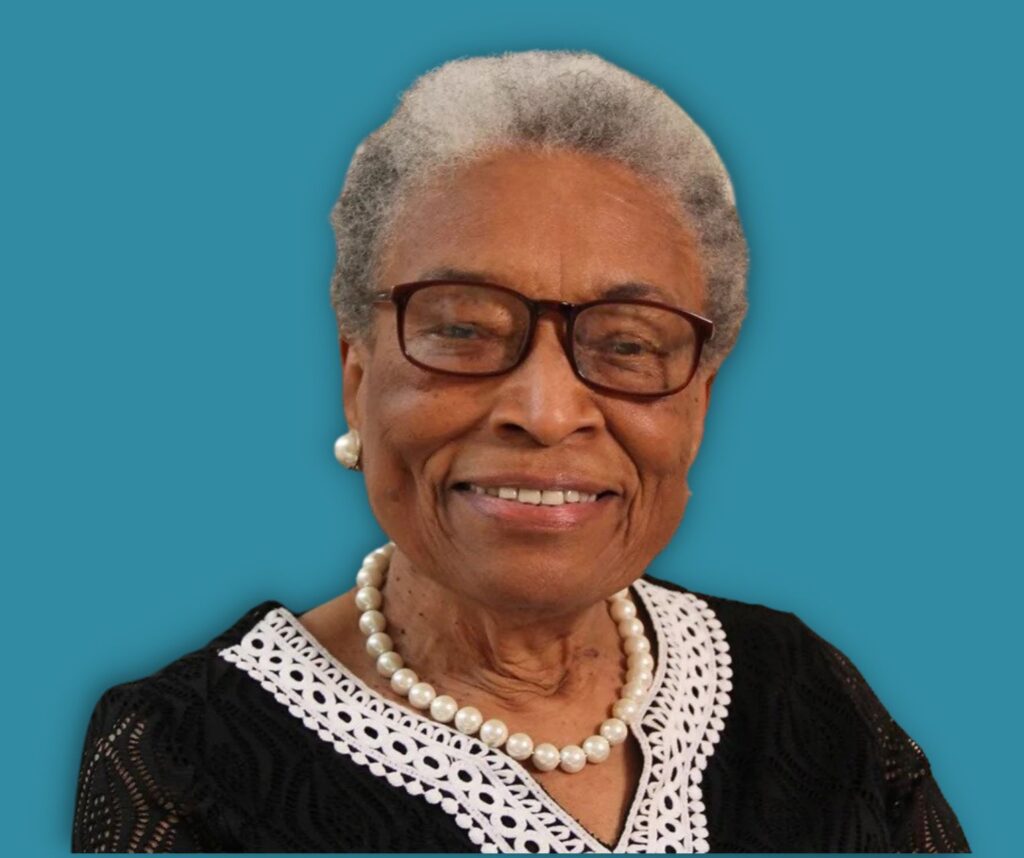
Congresswoman Eva Clayton
“This is an extraordinary opportunity for our organization and the people in rural North Carolina, said Henry Crews, executive director of GRRO. “Ms. Clayton has dedicated a large part of her life to fighting for rural communities, equitable care, and access to nutritious food, and we can’t think of a better way to tap into that knowledge. The forum is how we share knowledge, resources and bring others to the table to ensure a healthier rural NC together.”
Key speakers include Stacy Dean, Deputy Under Secretary for USDA’s Food, Nutrition, and Consumer Services; Debra Farrington, Deputy Secretary/Chief Health Equity Officer NC Department of Health and Human Services; Bob Etheridge, State Executive Director, USDA Farm Service Agency (FSA) in NC; Dr. Norbert Wilson, Director of Duke University’s World Food Policy Center; Honorable G.K. Butterfield, Former Congressman First District of North Carolina and a host of other community leaders and advocates.
While the forum is free, registration is required to ensure adequate seating and food accommodations.
See the full forum agenda at: grronc.org/rural-food-forum

Community
What is the Average Commute in Warren County, NC
Stacker compiled statistics about the average commute in Warren County NC using data from the U.S. Census Bureau.


ddisq // Shutterstock
See what the average commute is in Warren County, NC
American commutes are getting longer, with a U.S. Census Bureau report released in 2021 revealing the average one-way commute in 2019 reached a record high of 27.6 minutes. Combined with high gas prices, workers’ daily commutes are increasingly time-consuming and expensive—so much so that some are calling for commutes to count as part of the workday.
Even worse are travel times for “super commuters“—that unlucky 10% of Americans traveling more than one hour each way to punch a clock.
Stacker compiled statistics about the average commute in Warren County using data from the U.S. Census Bureau. Statistics are calculated based on 2020 5-year estimates. Warren County has a longer commute than five out of six neighboring counties, with Nash County, NC having the shortest commute at 23.5 minutes.
Warren County commuting by the numbers
– Average commute: 27.4 minutes
— 9.8% higher than state average
— #29 worst commute in the state
– Workers with 1+ hour commute: 9.1%
– Workers who drive to work: 93.9%
— Workers who carpool to work: 11.6%
– Workers who take public transport to work: 0.1%
– Workers who work from home: 2.4%
– Left for work between 12 a.m. and 6 a.m.: 15.0%
– Worked outside county of residence: 52.1%
Commutes in neighboring counties
#1. Nash County, NC: 23.5 minutes
#2. Halifax County, NC: 24.6 minutes
#3. Mecklenburg County, VA: 24.7 minutes
#4. Vance County, NC: 24.9 minutes
#5. Northampton County, NC: 26.0 minutes
#6. Warren County, NC: 27.4 minutes
#7. Brunswick County, VA: 32.9 minutes
Counties with the best commute in North Carolina
#1. Swain County: 19.0 minutes
#2. Hyde County: 19.6 minutes
#2. Jackson County: 19.6 minutes
Counties with the worst commute in North Carolina
#1. Gates County: 36.9 minutes
#2. Currituck County: 35.1 minutes
#3. Perquimans County: 34.4 minutes
Community
Warren County Memorial Library Hosts Oasis Spaces: North Carolina Green Book Project
The Warren County Memorial Library will host the “Oasis Spaces: North Carolina Green Book Project, 1933-1966” exhibit through January 31st.
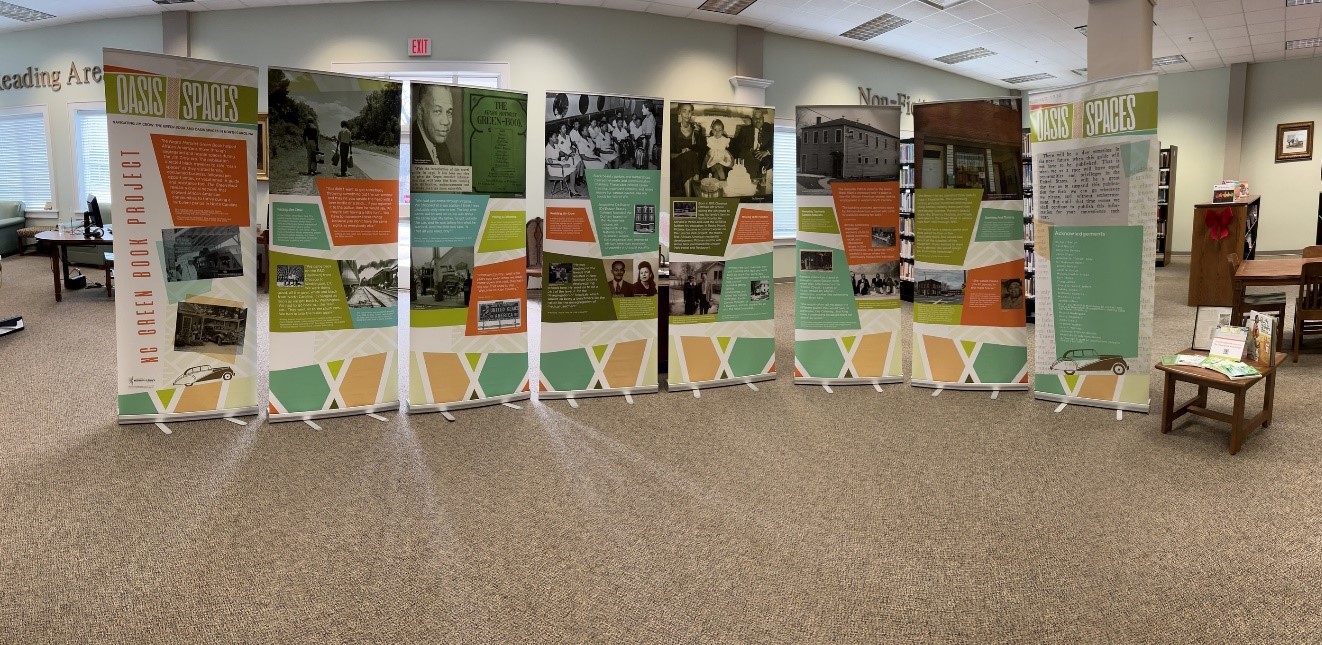
The Warren County Memorial Library will host the “Oasis Spaces: North Carolina Green Book Project, 1933-1966” exhibit through January 31st. The exhibit is made possible through a partnership with the North Carolina Department of Natural and Cultural Resources as part of the North Carolina African American Heritage Commission.
The exhibit reflects the Heritage Commission’s research about “The Negro Motorist Green Book,” which identified business that in essence served as “oasis spaces” for African American travelers during the time of segregation. The book was both a travel guide and a tool of resistance designed to confront the realities of racial discrimination in the United States and beyond. It listed over 300 North Carolina businesses including restaurants, hotels, tourist homes, nightclubs and beauty salons.
“We are pleased to present this exhibit for the community to explore a part of history that has been overlooked,” said Library Director Christy Bondy.

Oasis Spaces: North Carolina Green Book Project / Submitted photo
The library has several programs planned that accompany the exhibit including film screenings, and a virtual visit with author, Calvin Ramsey.
The Green Book Project was made possible in part by the Institute of Museum and Library Services.
The Warren County Memorial Library is located at 119 S. Front St., Warrenton, NC.
For more information about the Green Book project, visit www.wcmlibrary.org.
-

 Entertainment8 months ago
Entertainment8 months agoPHOTOS: DubFest 2024
-

 Education9 months ago
Education9 months agoALL SMILES: Dr. Carol Montague-Davis Meet + Greet (Photos)
-

 Entertainment10 months ago
Entertainment10 months agoPHOTOS: Jazz on the Farm @ Heritage Cultural Farm
-
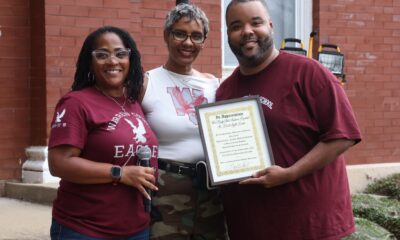
 Local8 months ago
Local8 months agoEAGLE PRIDE: WCHS Meet + Greet 2024 (Photos)
-

 Local10 months ago
Local10 months agoPHOTOS: Ridgeway Cantaloupe Festival 2024
-

 Local8 months ago
Local8 months agoPHOTOS: Soul City Homecoming 2024
-
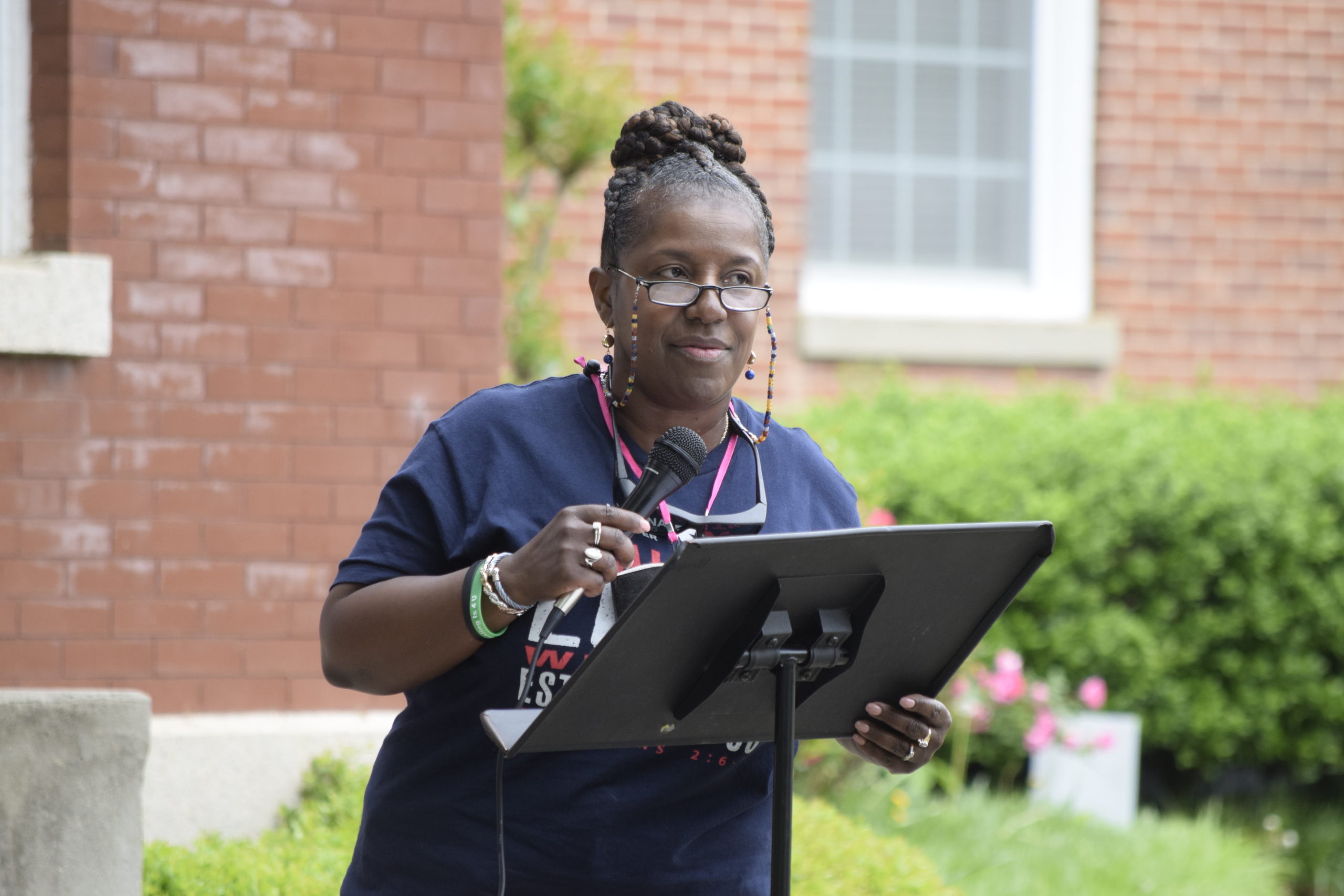
 Community3 years ago
Community3 years agoPHOTOS: National Day of Prayer 🙏
-

 Local9 months ago
Local9 months agoPHOTOS: 3rd Annual Dinner Off Main










